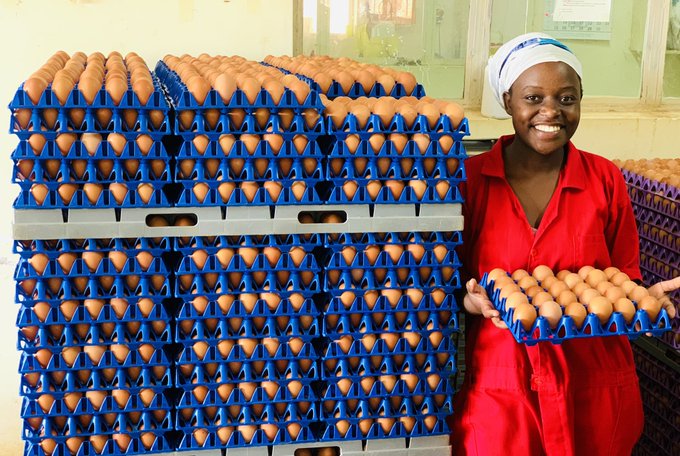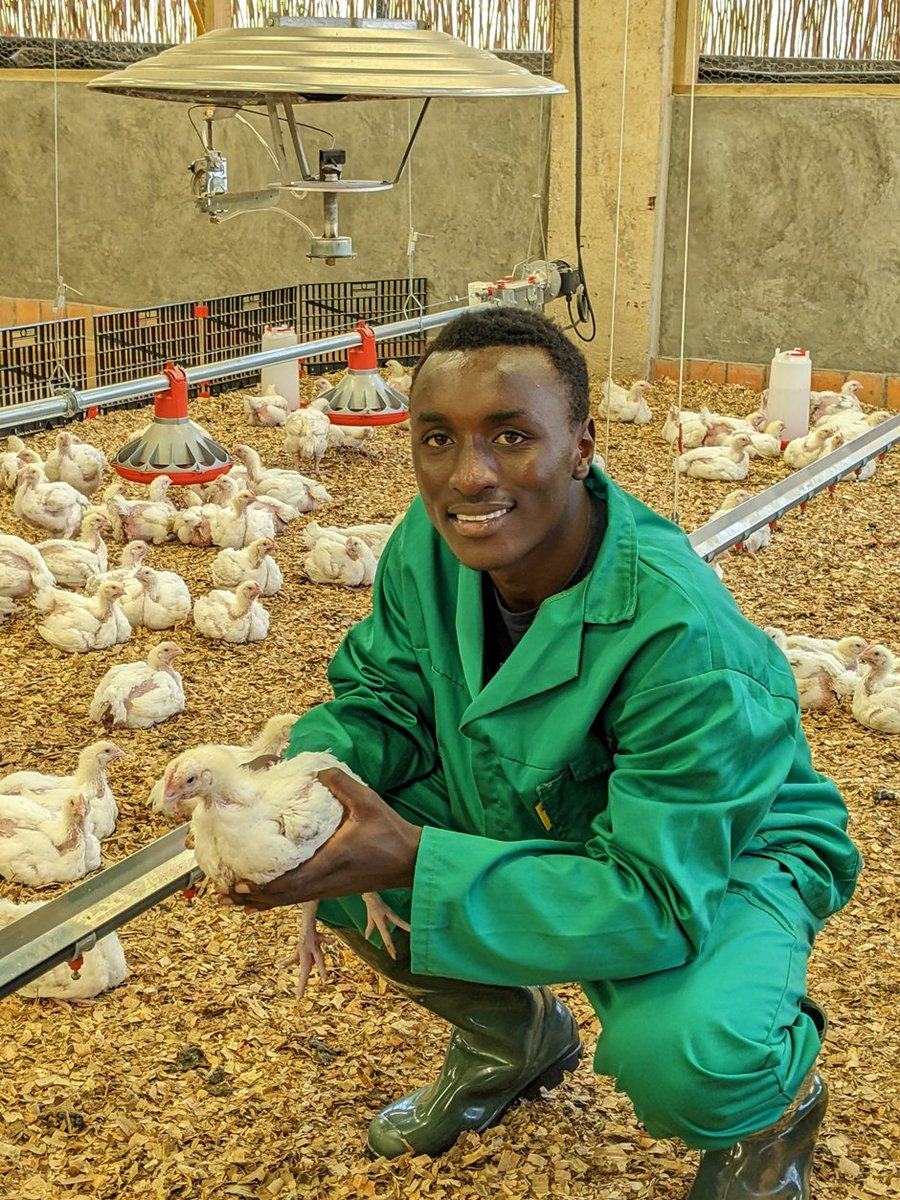What should you know if you want to start a successful poultry (Layers) farm?
#Thread #FarmwithMfasha @Farming_mfs 👇👇👇



#Thread #FarmwithMfasha @Farming_mfs 👇👇👇




1. Successful layers' business demands knowledge and experience as well as commitment in the areas below. It is very critical to seek advice and guidance from experts and other farmers and be prepared to invest time and resources for your success!
We are here to guide you👇👇👇
We are here to guide you👇👇👇
1. Housing
Proper housing is critical to the health and well-being of your birds. The housing should provide adequate space, hygiene, ventilation, lighting, and temperature control. Consider factors like the number of birds, climate, availability of resources, and the market.
Proper housing is critical to the health and well-being of your birds. The housing should provide adequate space, hygiene, ventilation, lighting, and temperature control. Consider factors like the number of birds, climate, availability of resources, and the market.
2. Breed selection
The breed will have a significant impact on profitability and productivity. For eggs, Hy-Line brown is the most common due to their high egg production starting at the age of 18 weeks. For meat, you can choose COBB 500 or ROSS 308, for their fast weight gain.
The breed will have a significant impact on profitability and productivity. For eggs, Hy-Line brown is the most common due to their high egg production starting at the age of 18 weeks. For meat, you can choose COBB 500 or ROSS 308, for their fast weight gain.
3. Nutrition
The feed should be supplied per the chickens' growth stage and feed requirements including proteins, calcium, and vitamins. The Layers' growth stages will be summarized in this thread.
This table summarizes the daily feed intakes for the layer chickens.
The feed should be supplied per the chickens' growth stage and feed requirements including proteins, calcium, and vitamins. The Layers' growth stages will be summarized in this thread.
This table summarizes the daily feed intakes for the layer chickens.

4. Layers' growth stages
4.1. Chick stage (Hatching to 6 weeks): During this period, chicks demand a protein-dense diet for growth and development. A starter feed with at least 20% proteins. Chicks should also access water ad libitum and be kept in a dry warm environment.
4.1. Chick stage (Hatching to 6 weeks): During this period, chicks demand a protein-dense diet for growth and development. A starter feed with at least 20% proteins. Chicks should also access water ad libitum and be kept in a dry warm environment.
4.2. Grower stage (6 - 17 weeks): Chickens grow fast and require balance feeds with proteins lower than starter feeds (About 16-18%). Ensure adequate space, ventilation, and clean water.
4.3. Laying stage (18 to end of productive life): Birds require layer feeds rich in calcium and other nutrients to support egg production (16-18% Protein & 3-4% Calcium). 2 weeks before laying, set up the laying boxes to familiarize the birds ahead.
Light for 14-16 hrs daily
Light for 14-16 hrs daily
5. Egg production and handling
A good hen can lay about 300 eggs per year onwards. Collect eggs frequently and store them in a cool, dry place. Storing eggs in dirty conditions can lead to bacterial contamination. Eggs can be kept for some days waiting for the market.
A good hen can lay about 300 eggs per year onwards. Collect eggs frequently and store them in a cool, dry place. Storing eggs in dirty conditions can lead to bacterial contamination. Eggs can be kept for some days waiting for the market.
6. Disease control
- Good biosecurity measures (Ex; Foot baths)
- Vaccination of infectious diseases like Newcastle
- Regular veterinary checks
- Proper cleaning and disinfection
- Limit visitors
- Appropriate nutrition
For the vaccination schedule refer to the following table.
- Good biosecurity measures (Ex; Foot baths)
- Vaccination of infectious diseases like Newcastle
- Regular veterinary checks
- Proper cleaning and disinfection
- Limit visitors
- Appropriate nutrition
For the vaccination schedule refer to the following table.

7. Marketing
Just like any business marketing strategy is essential for success. Identify your target market and ensure meeting their needs. Consider factors like pricing, distribution channels, and others.
Just like any business marketing strategy is essential for success. Identify your target market and ensure meeting their needs. Consider factors like pricing, distribution channels, and others.
8. Record-Keeping
Proper record-keeping is critical for monitoring the health and performance of the flock and deciding on areas of improvement. Keep track of egg production, feed consumption, mortalities, egg and chicken weight, and others.
Proper record-keeping is critical for monitoring the health and performance of the flock and deciding on areas of improvement. Keep track of egg production, feed consumption, mortalities, egg and chicken weight, and others.
Finally, careful management and attention to specific needs are essential, however, a farmer should be committed to ongoing learning and improvement. Stay positive, and remember, "Agriculture is not a job for faint-hearted people".
Any other opinion is welcomed.
#Like #Retweet
Any other opinion is welcomed.
#Like #Retweet
• • •
Missing some Tweet in this thread? You can try to
force a refresh

 Read on Twitter
Read on Twitter
















